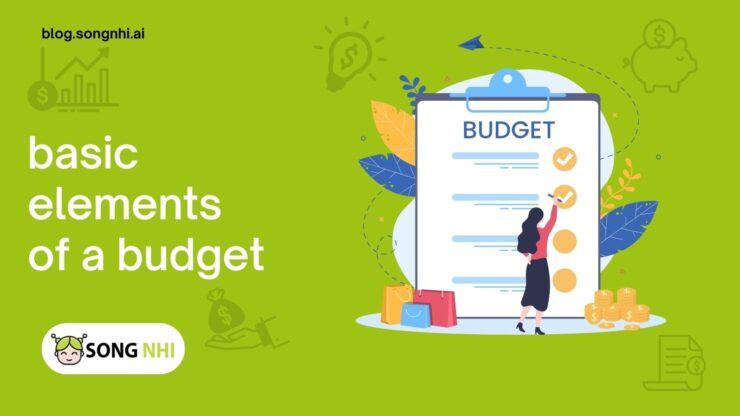Budgeting is a fundamental aspect of financial planning, providing a structured framework for managing income and expenses effectively. Understanding the five basic elements of a budget can help you develop a comprehensive financial plan that aligns with your goals and priorities. Let’s explore each element in detail.
1. Income
Income refers to the money earned or received by an individual or organization through various sources, including employment, investments, business activities, and other means. It represents the total revenue or earnings generated within a specific period.
- Primary Income Sources: Identify your primary sources of income, such as wages, salaries, self-employment earnings, or investment income.
- Secondary Income Sources: Consider any additional sources of income, such as rental income, dividends, interest, or side hustles.
- Variable Income: Account for any irregular or variable income streams that may fluctuate from month to month.
- Projected Income: Estimate your total monthly income based on past earnings and future expectations.
2. Expenses
Expenses refer to the money spent or paid out by an individual, business, or organization to cover costs, purchases, or obligations. These include payments for goods, services, utilities, debts, taxes, and other financial obligations incurred during a specific period.
- Fixed Expenses: List your essential fixed expenses that remain consistent from month to month, including rent or mortgage payments, utilities, insurance premiums, and loan payments.
- Variable Expenses: Identify variable expenses that may fluctuate, such as groceries, dining out, entertainment, transportation, and discretionary spending.
- Debt Payments: Include minimum payments on credit cards, loans, and other debts, as well as any additional payments towards debt reduction.
- Savings Contributions: Allocate funds towards savings goals, such as emergency savings, retirement accounts, investment accounts, or specific financial goals.
3. Financial Goals

Short-Term Goals:
Define short-term financial goals that you hope to achieve within the next year, such as paying off credit card debt, building an emergency fund, or saving for a vacation.
Medium-Term Goals:
Set medium-term goals that you aim to achieve within the next three to five years, such as purchasing a home, funding education expenses, or starting a business.
Long-Term Goals:
Establish long-term financial goals that you aspire to achieve over the next decade or more, such as retirement planning, saving for children’s education, or achieving financial independence.
SMART Goals:
Ensure that your financial goals are Specific, Measurable, Achievable, Relevant, and Time-bound to provide clarity and direction for your budgeting efforts.
4. Budget Categories
Essential Expenses:
Allocate funds towards essential expenses that are necessary for daily living, such as housing, food, transportation, healthcare, and insurance.
Discretionary Expenses:
Set aside a portion of your budget for discretionary expenses, such as dining out, entertainment, travel, hobbies, and personal indulgences.
Debt Repayment:
Prioritize debt repayment by allocating funds towards paying off credit card debt, student loans, car loans, or other outstanding debts.
Savings and Investments:
Dedicate a portion of your budget towards savings and investments to build wealth, achieve financial goals, and secure your future financial well-being.
Related articles:
- 10 Reasons Why Financial Planning Is Important
- Why You Need a Budget App?
- How to Make a Monthly Budget?
5. Monitoring and Adjustments
- Regular Monitoring: Track your income and expenses regularly to ensure that you’re staying within your budgeted amounts and making progress towards your financial goals.
- Budget Review: Review your budget periodically to assess your spending patterns, track your progress towards your financial goals, and identify areas for improvement.
- Adjustments: Make adjustments to your budget as needed to accommodate changes in your income, expenses, or financial goals.
- Financial Discipline: Practice financial discipline by sticking to your budget, avoiding unnecessary expenses, and making conscious choices that align with your long-term financial objectives.
Conclusion
Understanding the five basic elements of a budget—income, expenses, financial goals, budget categories, and monitoring and adjustments—is essential for achieving financial success and stability. By carefully managing your income and expenses, setting clear financial goals, allocating funds strategically, and monitoring your progress regularly.
Remember that budgeting is a dynamic process that requires flexibility, discipline, and ongoing attention. Be proactive in reviewing and adjusting your budget as needed to adapt to changes in your financial situation and goals.

















